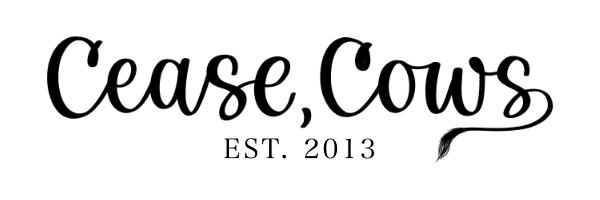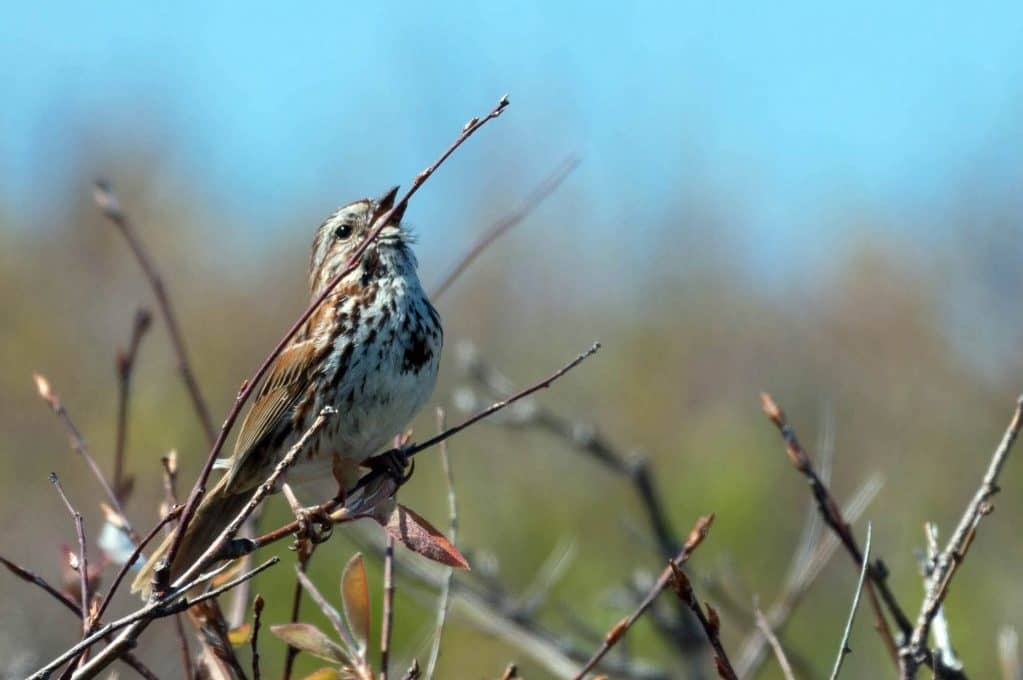The following piece received Honorable Mention in our 2013 Hallow/Hallowed Flash Fiction Contest.
Melanie thought that humans descended from birds. Back in the middle of her snap, she paid an old man strung out on heroin fifty bucks to read her past lives, to do a palm reading on the place where her hand was supposed to be but wasn’t. So he ran his finger down the scar that sealed the end of her arm up and then he told her that God created sparrows and some evolved into humans.
“It makes sense, though, doesn’t it?” she asked me. “On a personal level, just for me?”
“Not even,” I said. “Think about evolution. What do you need more, wings or hands?”
She said nothing, put her wrist in her pocket.
Later, she had us both get down on our knees to pray for the past to stay where it was, but when we got down there all she did was breathe.
Empty bones, like a body built with straws. It’s not a condition or a curse that anyone can figure out, that anyone can think up. Melanie showed me her full-body X-ray once, stuck it to the negative space where her left hand should have been, and told me she’s set up like a bird. “I’ve got struts and trusses all up and down through me,” she said. She looks like an airplane in some spots and an old bridge in others.
As far as medicine or God or the debris between them, she’s a one-off. This says almost nothing about her – how she’s mindful of the breeze, the touch of other people.
The meat processing plant lets us take anything from the discard cooler for $25 a week. Melanie’s haunted house was the best because of it. People thought it was unsanitary, but everything had been cleared with the city. There’s a record book somewhere detailing livers stuck to a wall and intestines hanging from light fixtures.
We changed the guts out every day and burnt the old ones in the backyard every night.
When someone would get to Melanie about it, criticize her for how satanic they thought it was, how morally questionable, she’d ignore them. It was up to me to hear all about it later.
“I just want to build a house of fear. See who walks in, who walks out.”
Her hand being gone had nothing to do with her bones being hollow. She cut it off in the process of finding out what was wrong with her and ended up lost in mythology and science.
“Atavism is when a genealogical trait reappears after being gone for generations,” she told me, years later. “They never actually disappear from the DNA. It’s like if you have a hammer and put it down, it’s still there, still a hammer just waiting and ready.”
I didn’t ask about the nails.
When her parents found her, her fingers were on the floor, which means she cut them off first and it wasn’t enough. Missing is the wrong word for her hand, but it’s what we said instead of going through the whole story over and over, about demons and pressure and superstition and which of them are imagined and which of them are not.
We were outside the haunted house one night working towards the opening, trying to think of a new grand finale. Melanie went around the back of the house and then a minute later she yelled at me from the roof. When she saw me looking, she jumped.
I took a step forward, planted my leg. She had twisted in the air so she landed light like a dancer on my forearms.
“Imagine it,” she said, leaning her head back and kicking her legs like a child. “People see no wires or net, and they give this big gasp, and then you turn around to catch me just in time. We take them somewhere and leave them there, pointed home.”
This was the other end of terror.
On the last day of September, we did a trial run and then threw the day’s entrails on a fire in our backyard. Melanie fell asleep on my lap and I tried to rock her without folding her in half. In the fire in front of me, something in the blood and guts was burning blue. It happened every time, but I could never figure what.
She dragged her hand down my chest and said, “If you had to pick a part of your body to lose, what would it be?”
“Probably something minor. A toe or something.”
“Okay,” she said. “Now what about on the inside?”
As the last group went through at the end of the first big weekend, I stood waiting in Melanie’s landing spot. I had caught her a dozen times that night with no problems.
Instead of seeing her stand at the edge of the roof and come off in front of the crowd, there was nothing. The rest of the house had been scary enough that nobody thought anything of it, went on their way as I waited and waited.
I couldn’t turn away, couldn’t stop thinking about what would happen if she showed up to jump and I wasn’t there. She finally came up behind me, tapped me on the shoulder, and looked with me at the spot where she should have been.
“What about pointing them home?” I asked.
Melanie didn’t move, just watched as our shadows crossed and matched in weight and past and future, the sun to eventually chase away the moon.
–
Ryan Werner works at a preschool in the Midwest. He is the author of the short short story collection Shake Away These Constant Days and the story cycle chapbook Murmuration. He runs the micro-press Passenger Side Books, is on Twitter @YeahWerner, and has a website.
Lead image: “Song sparrow” (via Flickr user Stephen Lester)


[…] “Atavism” by Ryan Werner […]